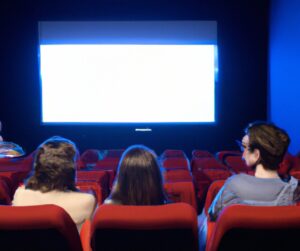
Teen mental health is a significant and complex issue, with its portrayal in films often shaping public perception and understanding. In recent years, there has been growing attention to the accuracy of these portrayals, particularly regarding therapy and treatment. This article delves into the depiction of teen mental health therapy in WA films, examining the accuracy of these portrayals and their impact on audience perception.
Introduction: The Importance of Accurate Portrayals
Films have long been influential in shaping societal attitudes and perceptions. When it comes to mental health, accurate representations are crucial for dispelling stigma and encouraging help-seeking behavior, especially among teenagers. However, the portrayal of teen mental health therapy in cinema has been varied, often reflecting stereotypes and misconceptions rather than reality.
Historical Background: Evolution of Portrayals
The evolution of teen mental health portrayals in cinema reflects changing societal attitudes towards mental illness. Historically, mental health issues were stigmatized and often sensationalized in films, perpetuating negative stereotypes. However, there has been a gradual shift towards more nuanced and realistic depictions in recent years.
Common Depictions: Stereotypes vs. Reality
In many films, teen mental health therapy is depicted in ways that may not accurately reflect real-world experiences. Stereotypes and Misconceptions such as the “crazy” therapist or the miraculous overnight recovery are prevalent and can perpetuate harmful myths about therapy. However, there are also Positive Representations that show therapy as a valuable and transformative process, highlighting the importance of seeking help and destigmatizing mental illness.
Influence on Public Perception
The portrayal of teen mental health therapy in films can significantly impact public perception and attitudes towards seeking help. Media Influence on Stigmatization can reinforce negative stereotypes and discourage individuals from seeking the support they need. Conversely, Shaping Attitudes towards Seeking Help can normalize therapy and encourage viewers to prioritize their mental well-being.
Washington Films: A Case Study
Examining specific films produced in Washington provides insight into the accuracy of teen mental health portrayals. By analyzing these films and comparing them with real-life scenarios, we can better understand the strengths and shortcomings of their depictions.
Challenges and Ethical Considerations
Filmmakers face various challenges and ethical considerations when portraying teen mental health therapy. Balancing Entertainment with Responsibility requires careful consideration to avoid sensationalizing or trivializing mental illness. Additionally, Avoiding Harmful Depictions is essential to prevent reinforcing harmful stereotypes and misinformation.
The Role of Filmmakers and Mental Health Advocates
Collaboration between filmmakers and mental health advocates is crucial in ensuring accurate and sensitive portrayals of teen mental health therapy. By consulting experts and incorporating diverse perspectives, filmmakers can create more authentic and impactful representations.
Addressing the Gap: Strategies for Improvement
To improve the accuracy of teen mental health portrayals in films, education and awareness campaigns are essential. Education and Awareness Campaigns can help debunk myths surrounding therapy and promote understanding of mental health issues. Furthermore, Incorporating Diverse Perspectives ensures that the experiences of all individuals are represented authentically on screen.
Do you want to read about cinematography? Also read Cinematic Techniques in Streaming Content: Enhancing the Visual Experience
Conclusion
Accurate portrayals of teen mental health therapy in films are vital for combating stigma and promoting help-seeking behavior. By striving for authenticity and sensitivity, filmmakers can play a significant role in shaping societal attitudes towards mental health.
